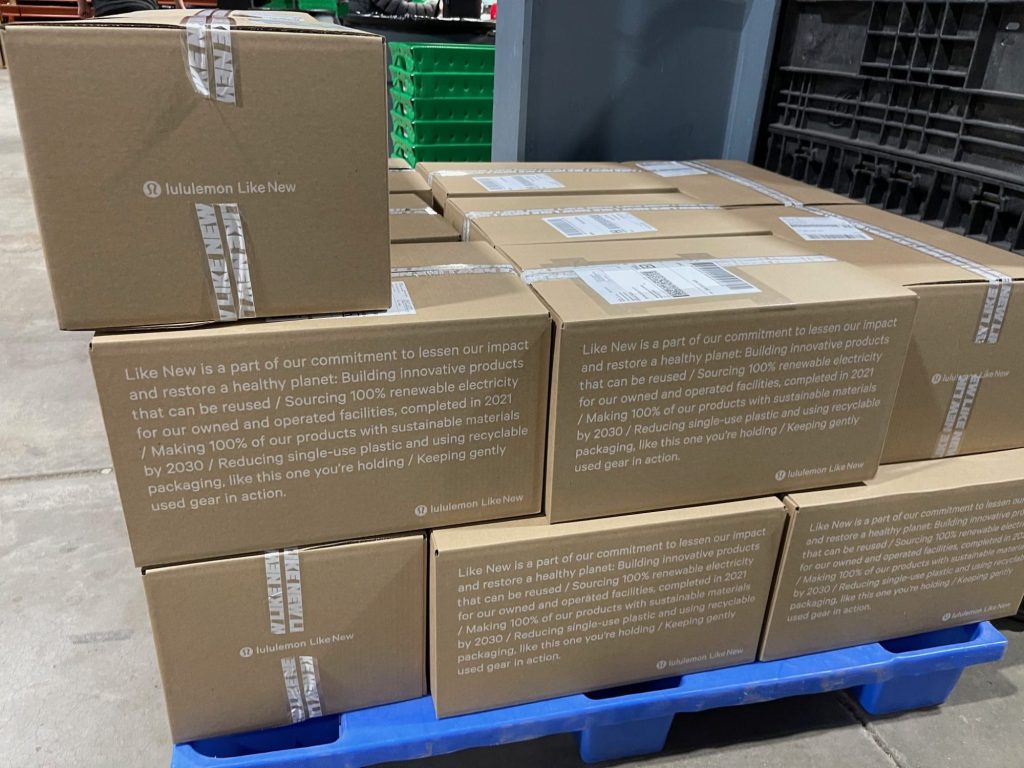After nearly a decade of spurring Lululemon’s embrace of innovative materials and secondhand sales, Esther Speck is stepping away. Speck, who joined the Vancouver athleisure wear giant in 2015 as vice president of global sustainability, spent the past two years as its senior vice president of global sustainable business and impact.
“When I joined Lululemon 10 years ago, I set out to build a global function, enterprise strategy, and platform for impact — one that would help shape the future of this high growth brand and catalyze impact beyond the company’s walls,” Speck posted on LinkedIn on May 8. “I’m proud to say that we’ve accomplished this. What began as a small, mighty team is now a global network of over 80 brilliant leaders around the world … .”
Speck approached sustainability as an innovation challenge, she told Trellis Co-Founder Joel Makower in 2024. She also saw that work through the lens of “what it means to be a brand rooted in well-being.”
Innovating
Athletic wear relies heavily on synthetic materials made from fossil fuels. As Lululemon’s net revenue more than doubled from 2020 to 2023, so did its greenhouse gases. And that attracted fire from activists. So in 2020, Lululemon made an ambitious commitment: for 100 percent of its products to feature preferred content and end-of-life solutions by 2030.
In taking Lululemon halfway through this 10-year transformation, Speck was involved in numerous interconnected programs and workstreams to extend product life and innovate materials. Startups benefiting from Lululemon’s strategic investments and partnerships included Geno, maker of a plant-based nylon, and Bolt Threads, maker of a fungus-based leather alternative (discontinued in 2023). Most recently, Lululemon announced, in March, a partnership with ZymoChem to expand work on biobased nylon. Another partnership, with Australian enzymatic recycler Samsara Eco, resulted in the Swiftly Tech long-sleeve top and an anorak jacket.
By 2023, Lululemon counted 57 percent preferred materials in its sourcing, a one-year rise of 44 percent.

Meanwhile, Lululemon Like New branded resale program llaunched four years ago. Speck credits the heads of retail and innovation for spearheading that initiative.
During Speck’s tenure, Lululemon also engaged in multiple collaborations to advance climate progress across the apparel industry. These include the UN Charter for Climate Action; the Fashion Climate Fund, an Apparel Impact Institute project to drive down emissions in the industry’s supply chains; and Fashion for Good’s Sorting for Circularity USA effort to map textile waste.
Moving forward
One year ago, the Women’s Executive Network named her one of the top 100 most powerful women in Canada. “Play the long game, trust and invest in people, be true to yourself, invite bold vision and pragmatic action,” Speck said around that time.
Her undefined next steps include “adventuring on this beautiful planet beyond the boardroom, while continuing to contribute through thought leadership and mentorship before starting new impact endeavors.”
Likewise, it’s unknown who will fill her shoes at Lululemon as its 2030 materials innovation targets and increasingly challenging net-zero climate goal for 2050 near.




